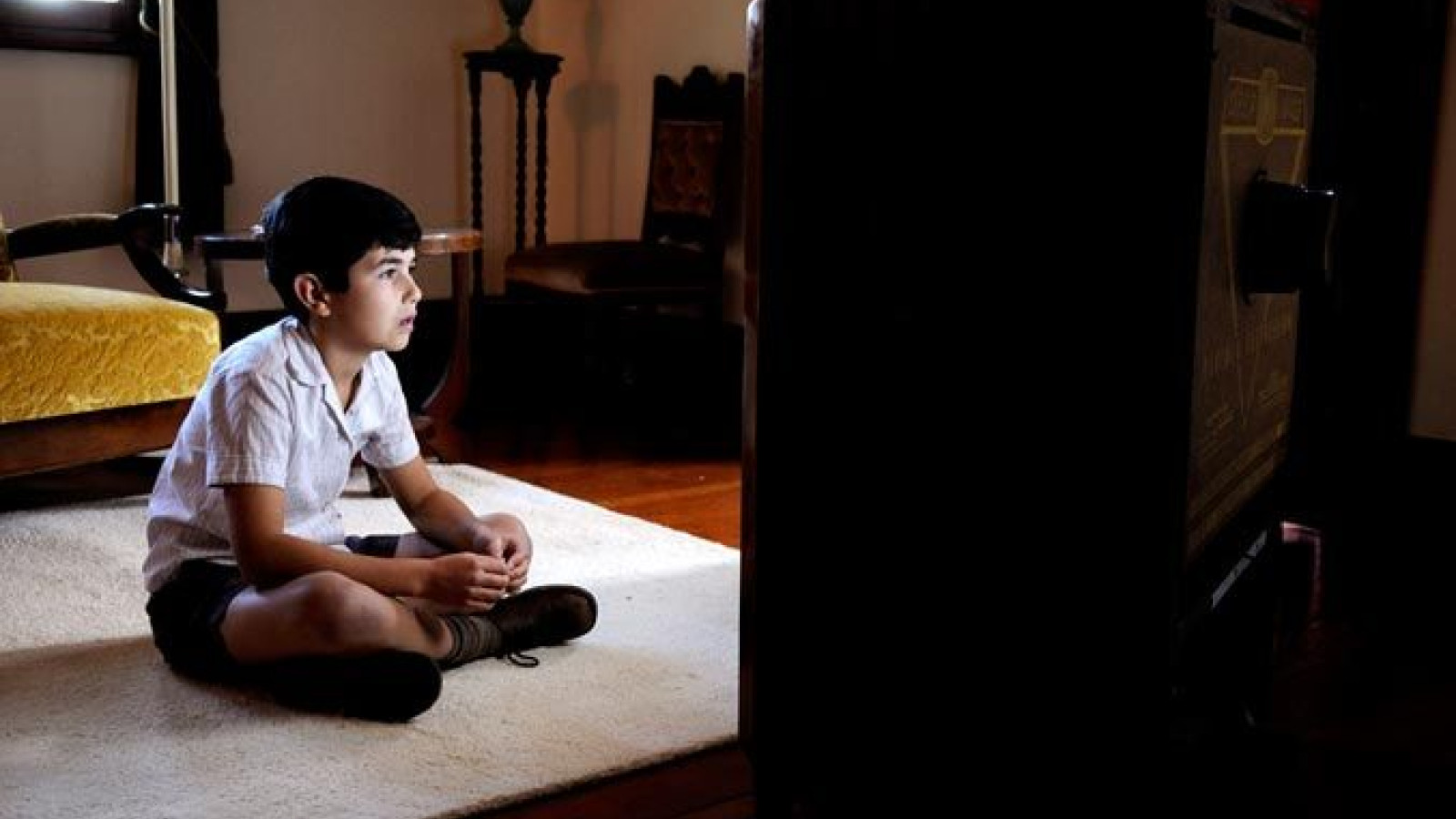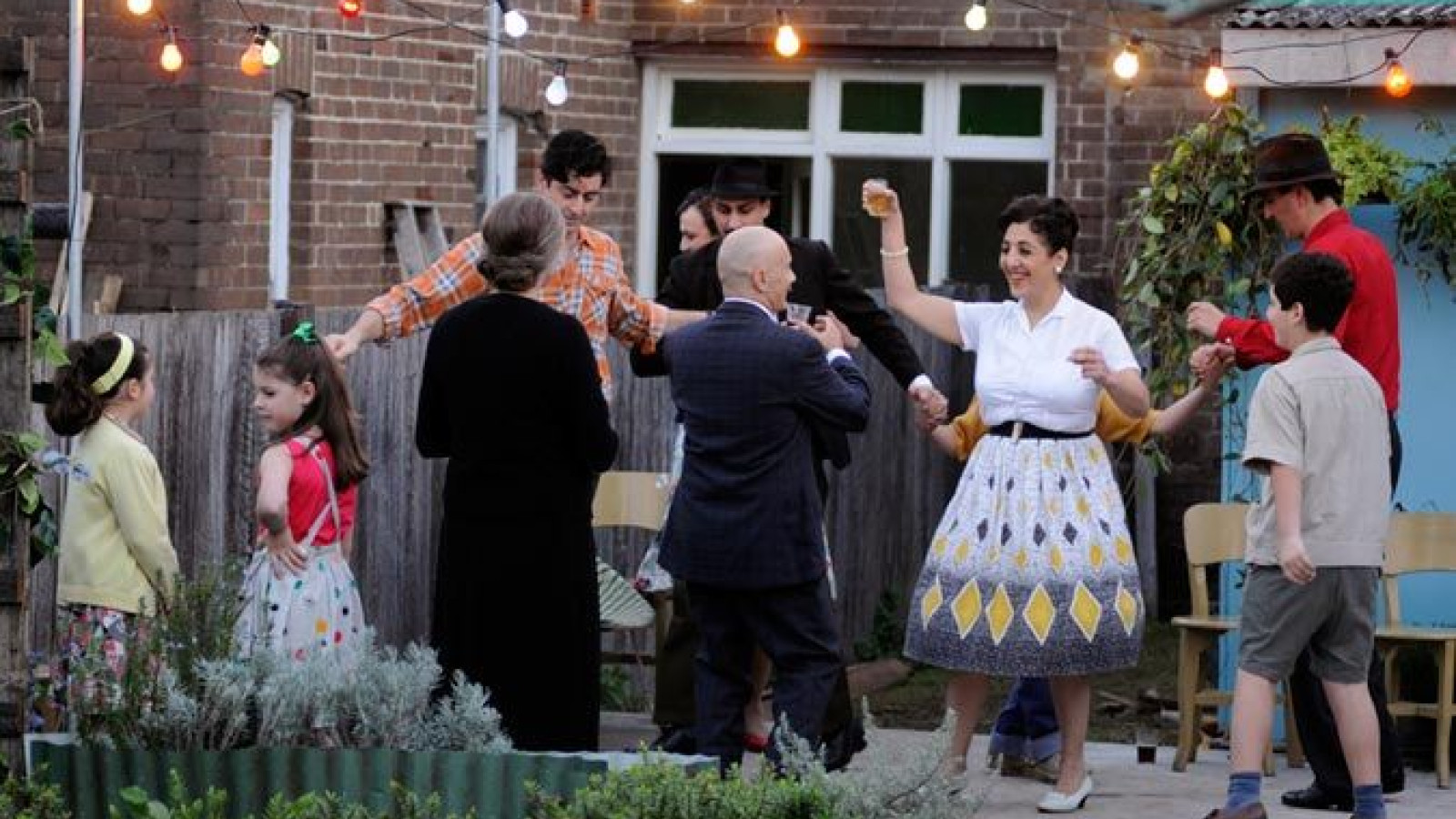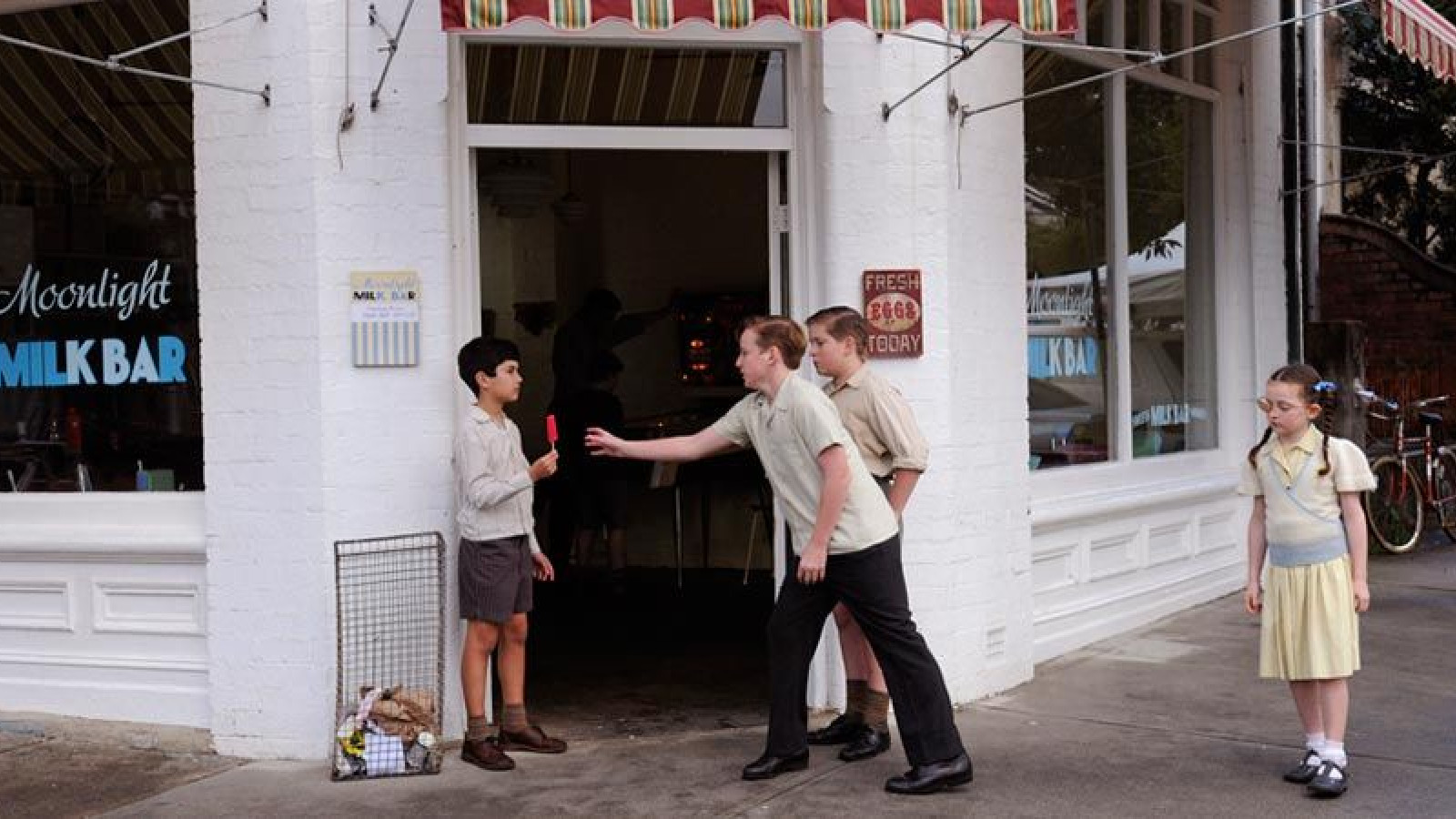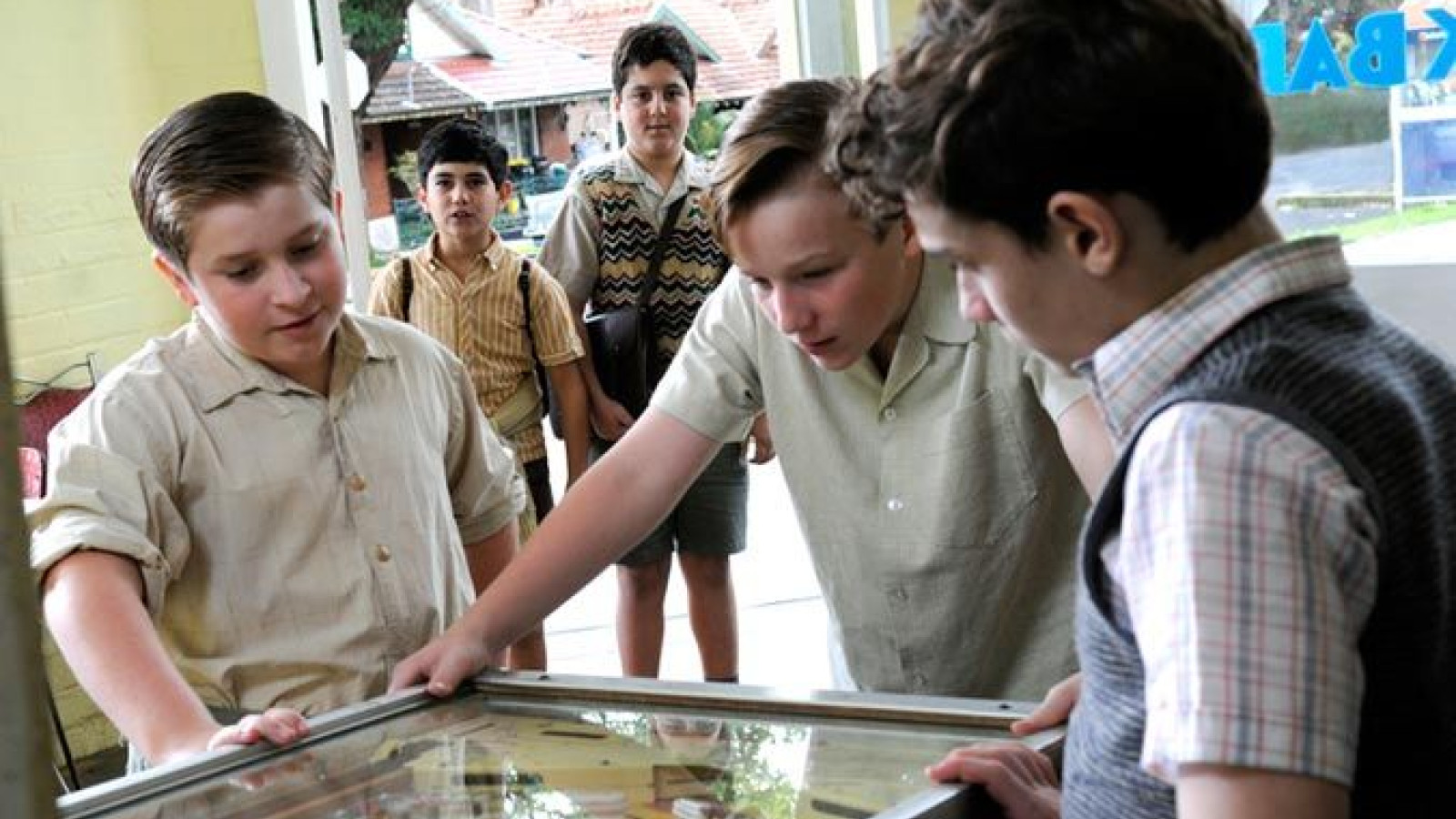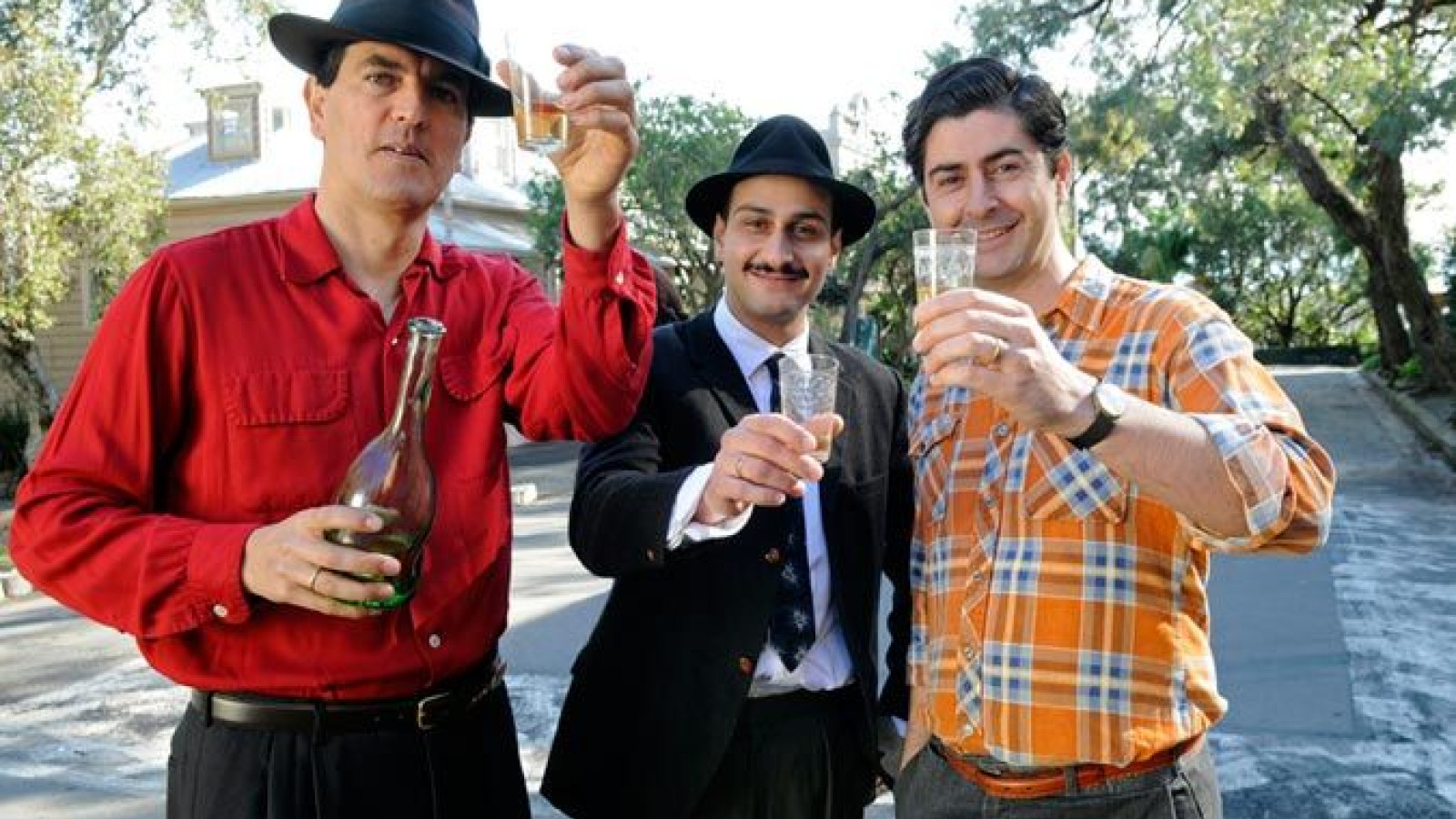
1958: Michaelis

Michaelis’s family is from Kalymnos, Greece. He’s caught between two worlds: the traditions of his Greek heritage and his desire to be seen as “truly Australian.” More than anything, he wants a television so he can watch The Adventures of Robin Hood. Through his longing, mischief, and moments of cultural tension, Michaelis’s story explores identity, belonging, and the quiet power of representation.
The 1950s were a time of rebuilding, tradition, and quiet transformation. Post-war migration reshaped Australian suburbs, while television, language, and cultural pride influenced identity, belonging, and generational expectations.
- 1950–1953: Australia participated in the Korean War, supporting international efforts and shaping post-war identity
- 1951: A national referendum to ban the Communist Party was defeated, reinforcing democratic values and constitutional rights
- 1956: Television was introduced in Australia, transforming home life and national connection during the Melbourne Olympic Games. Polio vaccinations began, marking a major public health milestone and protecting children across the country
- 1958: Anzac Day was declared a national public holiday, strengthening civic remembrance and national identity
The Federal Council for the Advancement of Aboriginals was established, laying foundations for future First Nations activism
First Nations Focus: Students can explore how the 1958 formation of the Federal Council for the Advancement of Aboriginals laid the groundwork for future activism, including the 1967 referendum.
Provocation Questions
Does fitting in mean giving something up, or can we belong without losing who we are?
Clip 1: The Adventures of Robin Hood
Michaelis is desperate to watch television like his neighbours, but his family doesn’t own one. He peers through binoculars to catch glimpses of the show, revealing his longing to be part of the “Australian” world.
Tuning In
As a class, discuss the following questions:
- Why does Michaelis want a television so badly?
- What does Robin Hood represent to him?
- How does Michaelis feel about being seen as different and excluded?
Finding Out & Sorting Out
- When did television arrive in Australia?
- What were the first types of shows? (Think news, sport, drama, children’s programs, and live events.)
- How did television change family life? (Did families spend more time together? Did it change routines like mealtimes?)
- Why might owning a television have felt like a symbol of belonging?
-
How did television influence what people thought was “Australian”?
-
Did everyone have access to TV at first?
-
How might this have created feelings of inclusion or exclusion?
Making Connections
Think about how television shaped belonging in Michaelis’ time and compare it to today. In pairs, create a Comparison Chart or Venn Diagram. In one section explore television in the 1950s–60s in another section explore television today and in the middle explore what's the same. Use the below prompts to guide your connections:
- How do people watch TV now compared to then?
- Does TV still make people feel included?
- What other technologies shape belonging today?
Extension Challenge
Write a short paragraph answering the following questions: Does technology help us belong, or can it make us feel left out?
Clip 2: Greek School
Attendance at Greek school is a common expectation for young Greek children in Australia. Michaelis is attending Greek school to learn about the history, language and culture of his ancestry, but his mind is still on the escapades of The Adventures of Robin Hood.
Tuning In
As a class, discuss the following questions:
- Why does Michaelis not want to go to Greek school?
- What does this tell us about his desire to fit in?
- How does the teacher’s comment about Michaelis “shaming his family” add pressure?
- Does belonging mean giving up part of who you are?
In pairs, write a letter from Michaelis to his parents that outlines why he doesn't want to go to Greek school. Include his emotions, fears and hopes.
Finding Out & Sorting Out
How did migration and cultural traditions shape life in 1950s Australia? In pairs, complete one of the following research activities:
Option 1: Investigate post-war migration and assimilation policies in 1950s Australia. Why were families encouraged to keep traditions? How did schools and communities respond to cultural diversity?
Option 2: Explore how language, tradition and media shaped cultural identity. How did Greek school help families maintain culture? How did television influence ideas of being “Australian”?
Share your findings back to the class and reflect on the broader picture of 1950s Australia and how it impacted Michaelis and his family.
Making Connections
Think about times when you’ve felt caught between family traditions and social expectations. What helps us belong without losing who we are? As a class, discuss the following questions:
- Have I ever felt torn between family traditions and fitting in?
- What helps me feel proud of my cultural background?
- How does media influence how I see myself and others?
Create a digital scrapbook that connects Michaelis’s story to your own experiences. You might liek to choose images that represent key moments or feelings from Michaelis’s story and then add images that show similar experiences or emotions from your life. You could also select quote/s from the episode and write a short reflection exploring how they relate to you.
Australian Curriculum Links
Explore how migration, tradition, and technological change shaped identity and belonging in 1950s Australia.
|
Year |
Content Description |
Inquiry Sprint Link |
CCP Integration |
|
Year 3 |
AC9HS3K01 Causes and effects of changes to the local community |
Tuning In: Explore how television and migration shaped daily life |
Investigate how cultural traditions and technology influenced belonging |
|
Year 4 |
AC9HS4K01 Role of individuals, events and groups in shaping communities |
Sorting Out: Compare Michaelis’s family and community practices |
Explore cultural leadership and civic identity in migrant communities |
|
Year 5 |
AC9HS5K02 Causes and effects of change in Australian society |
Finding Out: Investigate post-war migration, assimilation, and cultural tension |
Examine changing views on identity, belonging, and representation |
|
Year 6 |
AC9HS6K01 Democratic values and processes in Australia |
Taking Action: Reflect on civic inclusion, cultural pride, and respectful representation |
Link Michaelis’s story to civic voice and multicultural policy foundations |
Explore how identity, tradition, and representation are expressed through narrative voice and emotional tension in 1950s Australia.
|
Year |
Content Description |
Inquiry Sprint Link |
CCP Integration |
|
Year 3 |
AC9E3LE01 Personal responses to texts and characters |
Tuning In: Reflect on Michaelis’s emotional journey and desire to belong |
Explore how media and language shape relationships |
|
Year 4 |
AC9E4LY06 Create imaginative and persuasive texts |
Going Further: Write from Michaelis’s or Baba’s perspective to explore identity and tradition |
Promote empathy and cultural understanding |
|
Year 5 |
AC9E5LE01 Analyse character motivations and emotional depth |
Sorting Out: Compare Michaelis’s actions and emotional growth |
Explore belonging and identity through narrative voice |
|
Year 6 |
AC9E6LE01 Respond to texts shaped by historical and cultural contexts |
Making Connections: Link Michaelis’s story to broader narratives of migration, media, and civic change |
Connect storytelling to cultural resilience and representation |
Country/Place
Compare Michaelis’s backyard garden and family rituals with First Nations relationships to Country
Culture
Explore how cultural heritage is expressed through food, music, language, and storytelling
People
Highlight the role of Elders and family leaders in shaping values and emotional guidance
Asia and its Diversity
Use Michaelis’s Greek-Australian identity to explore how diverse cultures contributed to Australia’s evolving identity
Achievements and Contributions of Asian Peoples
Celebrate migrant communities in civic life, education, and cultural resilience
Asia–Australia Connections
Reflect on how migration, tradition, and storytelling foster belonging across generations
Additional Resources
Additional Clip: The Christening
Michaelis's father and friends are celebrating the birth of the baby. The boys next door, who had bullied Michaelis and called him a 'wog', apologise and pay him a penny to replace his lost ice-cream. Janice shows her affection for Michaelis.
Additional Clip: The Greek Garden
Michaelis and his father are working in their garden when Janis reminds Michaelis that it is time for The Adventures of Robin Hood on TV. When his mother comes to congratulate her husband and son on their work in the garden, she realises that the baby is coming.
